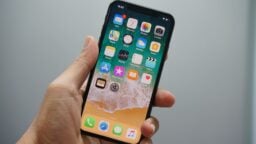Four months ago, Apple was rumoured to be buying Taylor Swift’s record label for $250m.
I bet they wish they had now.
If you want to acquire Big Machine today, you’ll have to get through the Swift family first – who own a significant stake in Scott Borchetta’s empire.
Was this Taylor’s real motivation for scolding Apple on Sunday, in even stronger terms than she did Spotify half a year prior?
(iTunes has provided somewhere close to half of 1989’s 5m+ sales, and 99% of its singles sales. Watching these lucrative transactions disintegrate in a streaming world would surely hurt Big Machine’s pricetag.)
Or was Taylor’s motivation simply sincere altruism for her struggling creative peers?
The truth is likely a bit of both – and there’s nothing wrong with that. She’s an entrepreneur, not a label lackey. (More on that later.)
I certainly don’t buy the conspiracy that this was a cooked-up Swift/Apple PR plot anymore than Swift’s eloquent cauterisation of Daniel Ek last November was Spotify-sponsored.
Swift’s message to Apple was polite, but unequivocally damning.
She painted the Cupertino firm as a greedy, lumbering behemoth – one so shockingly out of touch with artists, it didn’t comprehend the damage it was exacting upon them.
“I don’t buy the conspiracy that this was a cooked-up Swift/Apple Pr plot.”
Even the most scheming Apple corporate comms guru would recognise that Eddy Cue’s ‘Ta da! All fixed!’ solution was a Band-Aid. There’s still much reputational regeneration required.
You see, Apple sells a lot of nice phones to nice people who like nice Apple to be nice.
It’s become one of the globe’s richest corporations without ever deviating into the sort of dodgy territory – arms dealing/oil fields/intensive farming etc. – that usually attracts the stock market’s mightiest profit-munchers.
Our pop Valentine labelling Apple as stingy does not play well into this narrative.
The next step in Apple’s immaculate rehabilitation, then: it will have to pay artists (and songwriters) for its three-month free trial, and pay them well.
This will be music to the ears of the independents, who briefly faced the peril of a ‘black hole’ being plunged into their income by the potential migration of consumers to a free service.
(Presumably, if Taylor vs. Apple was all some kind of cynical marketing ploy, the hordes of upset independent businesses I’ve spoken to over the past fortnight deserve Oscars – as do the forgers of Apple’s very real, very scary-looking contracts.)
Yet as the celebrations die down, we’re left with some huge questions regarding artists as business pacesetters – and what on earth was in the Apple Music contracts that the majors signed.
Let’s tackle the second one for now.
“Theory: Jimmy iovine learnt his deal-making style in the belly of a major label, whose mentality clashes harshly with the principles of steve jobs’ legacy.”
Jimmy Iovine has been conspicuously silent in all of the post-Taylor brouhaha. Eddy Cue has been sent in to face down the media’s firing squad.
Perhaps that’s because Iovine led the negotiations with labels that explicitly banished royalty compensation for Apple Music’s free trial – and outraged 30% of the market by refusing to ease these terms.
Apple did agree to raise Apple Music’s royalty payout percentage to 71.5% in the US (58% to labels, 13.5% to publishers) and 73% in Europe.
Yet even with this sweetener, this arrangement’s balance of power was patently a disgrace.
It is art as concubine: you need us more than we need you, so be a doll and suck up the financial hit. You literally have no choice.
That’s not very nice. That’s not very Apple.
Next scene: in parachutes peacemaker Eddy with a few sheets from Apple’s piggy bank to smooth over accusations of Google-style bullying.
Crisis averted? We’ll see.
And to think Jimmy Iovine called the music industry “a mess”!
Theory: Iovine learnt his deal-making in the belly of a major label, whose mentality clashes harshly with the ‘do good’ principles of Steve Jobs’ legacy.
When it comes to most major label B2B deals, maximising self-interested outcomes (and making the other guy pay for it) isn’t just a ‘win’ – it’s a survival method.
At least, it used to be.
As Taylor The Great reigns victorious over international headlines, let’s not forget that it was the independent labels, not the majors, who stood unified in refusing to sign Iovine’s pact.
Without their cacophony of rebellion, Swift may never have felt galvanised to have penned her influential missive. The indies saw this contract stunk, and told the world why.
In contrast, the majors signed it. Dutifully, quickly and in secret.
Two possible outcomes: the majors either received better perks than any of us know about, or rolled over and gave Iovine what he wanted.
Universal, Sony and Warner are now left with inked agreements telling the story of their willingness to ostensibly give music away for free.
They were no doubt promised future riches and glory for their upfront strife. As I say, Iovine learnt his trade within a major record company.
“Without the cacophony of rebellion caused by the indies, taylor swift may never have felt galvanised to pen her influential missive.”
(Food for thought: You have to wonder what Jimmy Iovine, Interscope founder, would have made of the contract from Jimmy Iovine, Apple ambassador.)
Will these major contracts now be reversible?
Will Eddy’s endowment fund stretch to those who have already agreed self-flagellating terms?
UMG, Sony and Warner better hope so. Because otherwise, that’s not an easy truth bomb to drop on artists currently raising a glass to Taylor’s heroism.
And to be clear, that’s exactly what Swift just demonstrated: heroism.
Whichever of the inevitable whispers of Apple collusion you choose to believe, Swift just used – and risked – her popularity to shame a (temporary) enemy of creatives.
Is it not rather embarrassing that the world’s biggest popstar can sniff out and smash such artistic devaluation while the industry’s biggest corporate players merely glad-hand and curtsy?
Perhaps this should be seen as a landmark moment in the ongoing shift of influence from investor to creator.
Another controversial area of Apple Music is Connect, the D2F channel in which Apple promises to bring together artists and fans with “zero interference”.
Sorry guys: looks like Taylor Swift beat you to it – with nearly 60m followers on Twitter and 71m Facebook fans.
That’s potentially a heck of a lot of phones to lose over a Tumblr grumblr.
As such, Swift commands an interactive consumerist squadron large enough to wound any corporate superpower – and out-muscle any label’s burly business affairs mindset.
“Throughout taylor swift’s 500-word letter, and eddy cue’s concillatory response, the word ‘label’ was not used once.”
Swift’s reaction to Apple’s unpalatable terms naturally fits into a career that’s long seen her fight to maintain her own rights and their value.
This pattern began when Swift spurned megabucks advances from the majors to sign with her manager’s label, Big Machine, and grasp control of her future income.
Remember: Universal Music Group is Big Machine’s distributor – not its master.
Swift’s actions this week have fast-tracked her emergence as the patron saint of direct artist power.
The 1989 star has now alchemised her popularity into public deal-making.
In doing so, she has accrued a far healthier outcome than the clandestine, privacy-clad label mediation held within Cupertino’s walls.
Here’s the scariest thing for the majors in this post-Taylor world: throughout her 500-word letter to Apple – not to mention Eddy Cue’s quick-fire conciliatory response – the word ‘label’ wasn’t mentioned once.
Not once.
It’s almost as if, for these two giants of pop culture, record companies are now becoming an after-thought.
“It’s almost as if, for apple and taylor swift, record companies are becoming an after-thought.”
This kind of belief isn’t just taking root in the rarefied ecosystem of the world’s biggest-selling act.
Case in point: UK indie act Wolf Alice have just released their excellent debut album. It’s being widely hailed as the indie-rock debut of the year.
It wasn’t released on Universal, Sony or Warner, but on the label of the band’s respected management team at Dirty Hit.
Remind you of anyone?
(Dirty Hit even one-upped Taylor by snubbing major distribution for the record in the UK; they’ve gone with INgrooves.)
Expect Wolf Alice to become huge and exercise their own artist power in all manner of exciting ways in the future.
When they do, it will be worth remembering this: in the wake of Apple’s great music U-turn, Dirty Hit tweeted something rather telling.
“Whilst the men in suits agree deals that FUCK artists, a girl from Pennsylvania stands up for art to be valued.
“Taylor Swift, we salute you.”Music Business Worldwide



